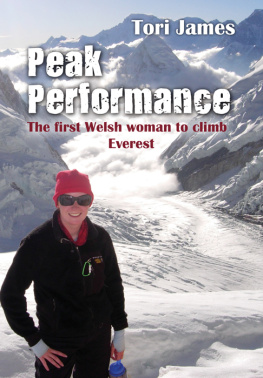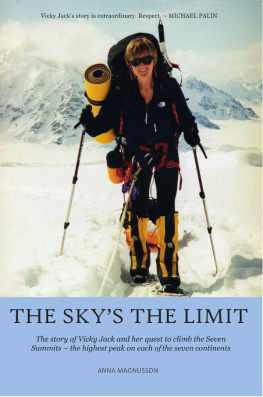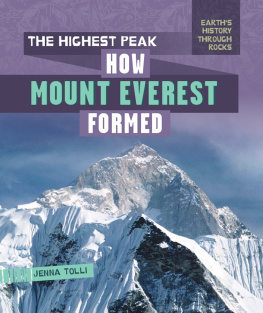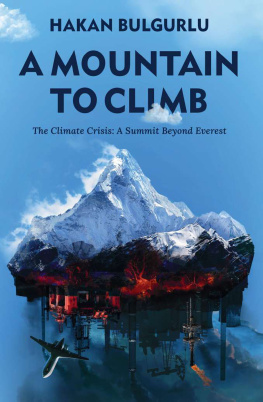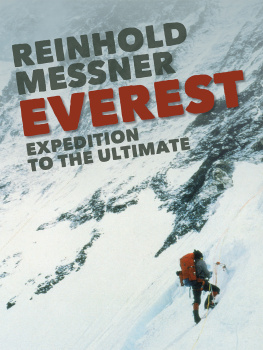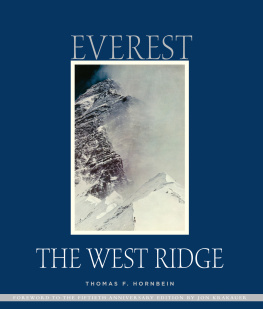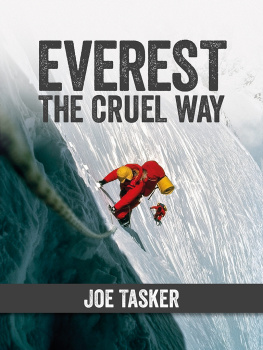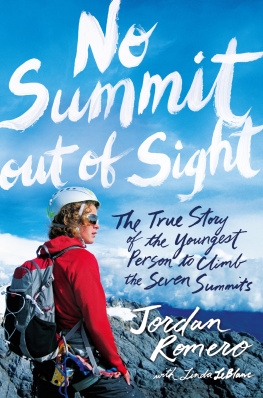Peak Performance
Published by Accent Press Ltd 2013
ISBN 9781908917553
Copyright Tori James 2013
The right of Tori James to be identified as the author of this work has been asserted by her in accordance with the Copyright, Designs and Patents Act 1988.
All rights reserved. No part of this book may be reproduced, stored in a retrieval system, or transmitted in any form or by any means, electronic, electrostatic, magnetic tape, mechanical, photocopying, recording or otherwise, without the written permission of the publishers: Accent Press Ltd, The Old School, Upper High St, Bedlinog, Mid-Glamorgan, CF46 6RY.
The Quick Reads project in Wales is an initiative coordinated by the Welsh Books Council and supported by the Welsh Government.
Printed and bound in the UK
Cover design by Madamadari
Cover photo by Benjamin Stephens

Peak Performance
Tori James
ACCENT PRESS LTD
To my family, friends and colleagues thank you for your never-ending support and encouragement. You are the inspiration in my life and the people who give me the energy and enthusiasm to take on new challenges.
To my young cousins Mark, eve, Rebecca, eleanor, Huw, evan and Tom I hope that you will all embark on some exciting adventures of your own one day, and treasure the beautiful countryside we have in Wales and the UK.
Introduction
Mount everest is the highest mountain in the world. Standing at 8,850 metres high, its black, wind-ravaged peak dominates the Himalayan mountain range.
For hundreds of years this natural wonder has both terrified and fascinated climbers and explorers. In 1953 Sir edmund Hillary and Tenzing Norgay made history when they risked their lives to become the first people to reach the rooftop of the world.
Today, everest remains one of the most dangerous places on earth. every year hundreds of climbers try to reach the summit and many do not return home. Their bodies lie where they have fallen, in icy graves on the mountain.
The dangers are clear. Temperatures are below 20C, the air is thin and there is the constant threat of avalanches and rockfalls. But the achievement of reaching the top of the world is so great that people are willing to risk everything to get there.
For some, climbing everest is a childhood dream but for me it was all about the challenge of doing something I never thought was possible.
Becoming the first Welsh woman and the youngest British female to reach the summit of everest in 2007 was the proudest moment of my life. The lessons Ive learnt along the way are not from physically reaching the top, but from the journey, both on and off the mountain. I believe the secret of success is being passionate about the things you do in your life; its about thorough planning and never giving up even when the going gets tough.
Everyone has their own personal goals and dreams. I hope this book will show that if a 5 1 farm girl from Pembrokeshire can succeed in climbing the worlds highest mountain, you too can achieve your dreams. All you need is self-belief and a can-do attitude.
Chapter One
THE YOUNG EXPLORER
Im sure that my taste for adventure started before I was born. On 10 December 1981, the snow was falling heavily on my familys farm in Pembrokeshire. My mum and dad watched as the giant flakes hid their car and covered the tracks. And thats when I decided it was time to make my entrance into the world.
As Mum went into labour, Dad went to dig out his old Land Rover and they made the slow and slippery nine-mile journey from our home to Withybush Hospital in Haverfordwest, where four hours later, at 4 p.m., I was born exactly on time.
I like to think that being born in a blizzard is the reason why I love cold, wintry, snow-covered places. I grew up on a dairy farm with my younger sister, Olivia, so being outdoors in all weather was natural to us. My dad, Richard, was born on the family farm and has lived there all his life, just like his father and grandfather before him. He met my mum, Jane, at a Young Farmers dance when she was a teenager.
Living on a farm, surrounded by dangerous machinery and animals, I learnt to respect the power of nature and understand the risks. We kept a herd of more than a hundred milking cows and sixty beef cattle, which needed constant attention. I have vivid memories of my parents coming into the kitchen on many occasions, soaking wet and covered in cow muck, after being out in the fields looking after the animals. Being farmers, there was never a chance of putting off a task until the rain stopped. It was an all-weather way of life.
I would often help out feeding the calves. And seeing Mum and Dad working equally hard on the farm, there was never any question that women were not as strong or capable as men.
I was four years old when my nan gave me an important piece of advice, which I have carried with me throughout my life. I was helping her to bake a Victoria sponge in her kitchen. Struggling to get the lid off the jam jar, I turned to her and said, I cant do it, Nan. Will you try? and handed the jar to her. She took it from me, looked at the jam jar, then looked at me and announced, Theres no such word as cant. Try again, and passed the jar back to me. I tried again and the second time the top popped off. It was a lesson that has stuck with me throughout my life and helped me whenever I have felt like giving up.
At school, my favourite subject was geography and it still is. even at primary school I was fascinated by the water cycle and waters power to erode landscapes and carve features into rock. From the age of eleven I attended two boarding schools. Living away from home was daunting at first but then it became an adventure all of its own and I loved every minute of it.
Throughout my teenage years I thrived on being active and was always looking for things to do. I joined the 4th Haverfordwest Girl Guides, where I learned to camp, light and cook on open fires and work as a team. One of my fondest memories is the time we went on a trip to Switzerland. Our leaders chose a small group of girls to go hiking in the early hours of the morning to watch dawn break over the mountains. It was such an adventure, climbing steep, rocky paths in complete darkness, listening to the cow bells in the distance. I felt intrepid, and that same feeling of excitement when venturing into the unknown in the dark still remains with me today when I am out in the mountains.
At fourteen I got the chance to plan and carry out an expedition on my own when I started the Duke of edinburghs Award. The Award encourages young people to challenge themselves through a series of different activities, including volunteering, physical challenges and learning new skills. Working with four other girls I completed Bronze and Silver levels and then aimed for the highest level Gold Award. For this my team had to plan a 50-mile route in a remote area of the UK over four days. Carrying our camping equipment on our backs, we walked for miles across mountains and rivers. Our legs were tired, our knees sore and our feet in blisters. But the excitement of reaching the finish and being presented with a Gold Award made it all worthwhile, and left me wanting more.
During my final year at school I joined a youth expedition run by British exploring. Founded by Surgeon Commander Murray Levick, a member of Scotts Antarctic expedition of 191213, British exploring is a youth charity steeped in history. It offers young people the chance to take part in adventures and environmental research projects in remote places of the world like the Amazon rainforest or the Arctic. My parents allowed me to apply to join an expedition to the Land of Fire and Ice, learning to ice-climb and abseil on the Vatnajkull glacier in Iceland. Out of hundreds of teenagers who applied I was picked for one of the forty-five places but my parents could not afford to fund it all, so I had to start organising events, including a school concert, disco and pool tournament. It was a busy time, planning my expedition and revising for my A-level exams.
Next page
